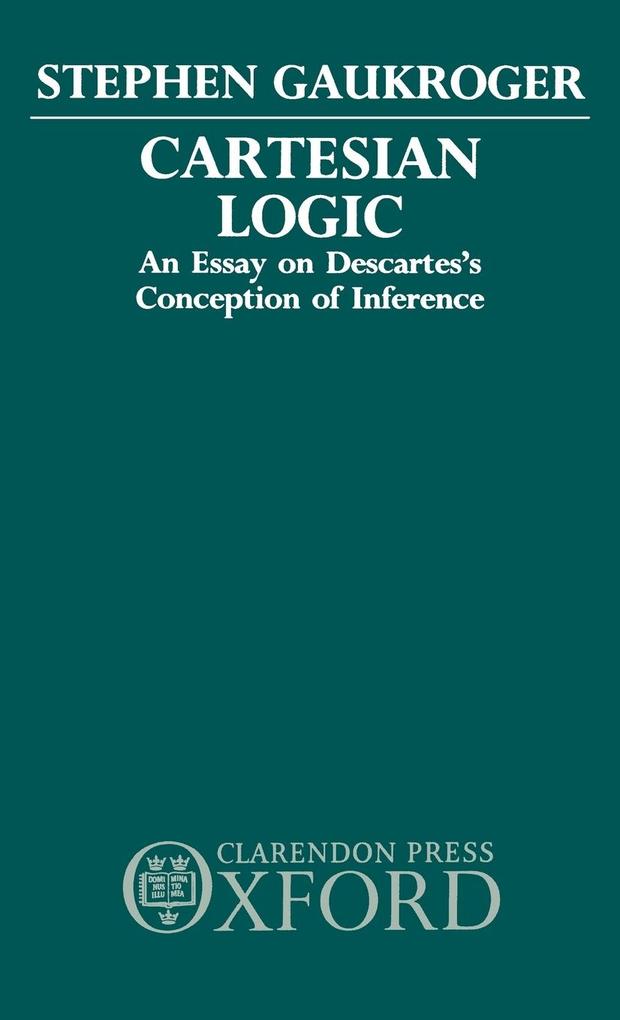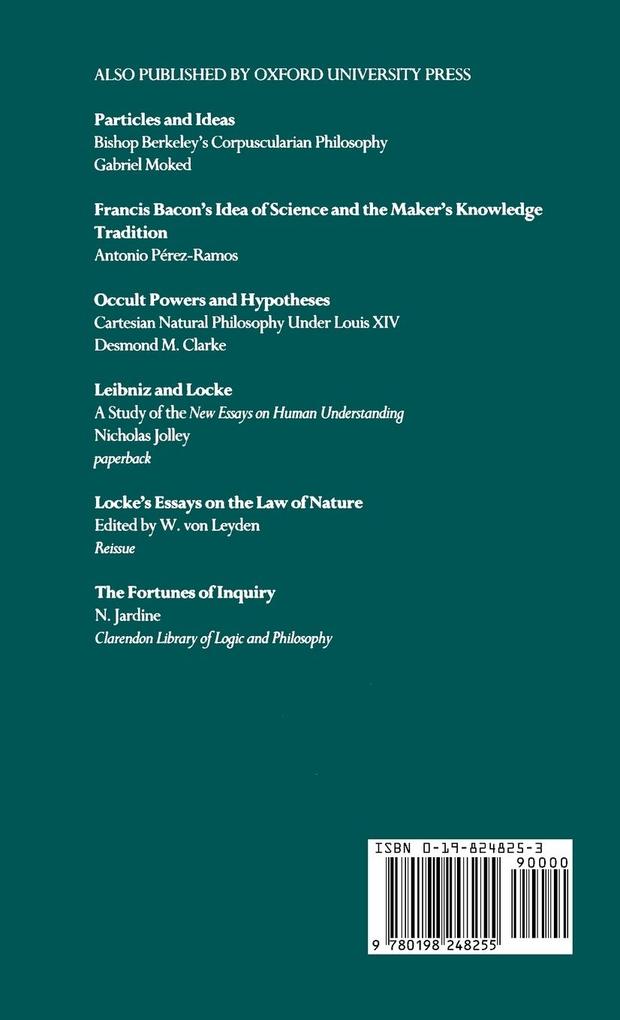
Zustellung: Mo, 18.08. - Fr, 22.08.
Versand in 2 Wochen
VersandkostenfreiBestellen & in Filiale abholen:
This book deals with a previously neglected episode in the history of logic and theories of cognition: the way in which conceptions of inference changed during the 17th century. Gaukroger focuses on the work of Descartes, contrasting his explanation of inference as an instantaneous grasp in accord with the natural light of reason with the Aristotelian view of inference as a discursive process. He offers a new interpretation of Descartes' contribution to the question, revealing it to be a significant advance over humanist and late Scholastic conceptions, and argues that the Cartesian account played a pivotal role in the development of our understanding of the nature of inference.
Inhaltsverzeichnis
Abbreviations; Introduction; Descartes and traditional syllogistic: The scope of logic; The syllogism as a Petitio Principii; The heuristic role of syllogism; Descartes's conception of inference: Conceptions of logic before Descartes; Conceptions of cognitive grasp before Descartes; The natural light of reason; Eternal truths: A human model for cognition; Discovery and proof: Analysis and discovery; Synthesis and proof; Appendix: The terms `a priori' and `a posteriori' in the Reply to the second set of objections to the meditations; Scientific reasoning: The method of discovery; The epistemic value of deduction; Conclusion; Bibliography; Index
Produktdetails
Erscheinungsdatum
12. Oktober 1989
Sprache
englisch
Untertitel
An Essay on Descartes's Conception of Inference.
Sprache: Englisch.
Seitenanzahl
156
Autor/Autorin
Stephen Gaukroger
Verlag/Hersteller
Produktart
gebunden
Gewicht
354 g
Größe (L/B/H)
216/140/13 mm
ISBN
9780198248255
Pressestimmen
"An exhibition of clarity and distinctness in the history, analysis, and exposition of philosophical origins and influences, problems and solutions."--The Review of Metaphysics
"The book is clearly written and reveals an impressive grasp of the history of logic, epistemology, and philosophy of science. No other book treats this material in such detail."--Choice
"The book is clearly written and reveals an impressive grasp of the history of logic, epistemology, and philosophy of science. No other book treats this material in such detail."--Choice
Bewertungen
0 Bewertungen
Es wurden noch keine Bewertungen abgegeben. Schreiben Sie die erste Bewertung zu "Cartesian Logic" und helfen Sie damit anderen bei der Kaufentscheidung.











